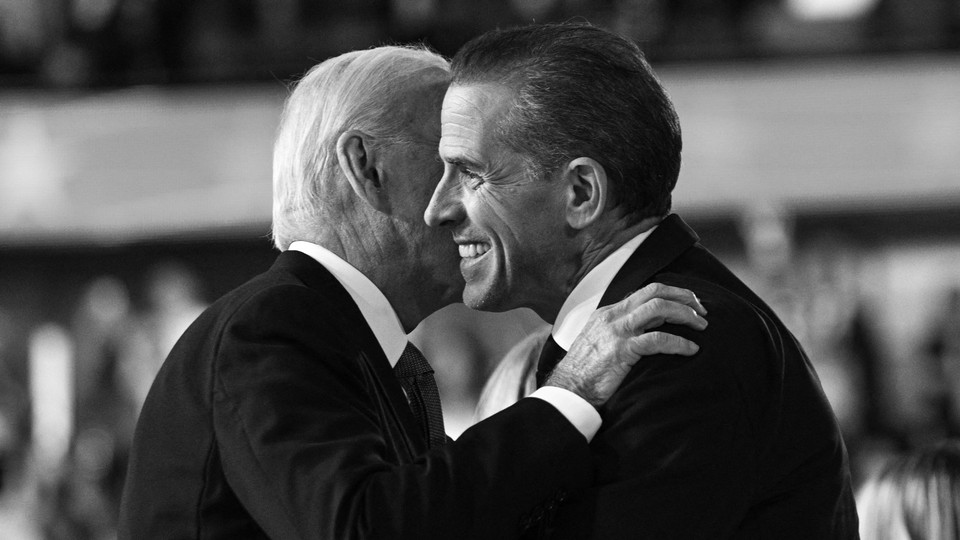Biden’s Unpardonable Hypocrisy
3 min read
When President Joe Biden was running for a second term as president, he repeatedly ruled out granting a pardon to his son Hunter, who has pleaded guilty to tax fraud and lying on a form to purchase a gun. “He was very clear, very upfront, obviously very definitive,” White House Press Secretary Karine Jean-Pierre said of one of his many promises to this effect.
Biden professed a willingness to abide by the results of the justice system as a matter of principle. But in breaking his promise, and issuing a sweeping pardon of his son for any crimes he may have committed over an 11-year period, Biden has revealed his pledge to have been merely instrumental.
In a defiant statement issued tonight, Biden insisted that his son’s prosecution was selective and unfair. “No reasonable person who looks at the facts of Hunter’s cases,” he wrote, “can reach any other conclusion than Hunter was singled out only because he is my son—and that is wrong.”
It is probably true that one of the crimes charged to Hunter Biden, lying on a form to obtain a firearm, is the sort of thing an average person would be unlikely to face charges over. (Hunter affirmed on the form that he was sober, but later admitted having been in the throes of addiction.) The other charge, blatantly failing to pay millions of dollars in taxes, is routinely brought against people who are not political targets. To the extent it’s true that Hunter Biden was more likely to get caught than the average tax cheat, that is an indictment of the tax system. (It is also, ironically, an aspect of the system Joe Biden has set out to change by beefing up IRS enforcement capacity.)
Biden’s complaint about the higher standard applied to his son reflects the perspective of myopic privilege. Crimes by family members of powerful public officials are far more damaging to public confidence than similar crimes by anonymous people. Holding them to account through strict enforcement of the law is good and correct.
What the president fails to note in his self-pitying statement is that Hunter Biden for years engaged in legal but wildly inappropriate behavior by running a business based on selling the perception of access to his father. The only commodity Hunter Biden had to offer oligarchs in Ukraine, China, and elsewhere was the belief, or hope, that he could put in a good work for them with his dad.
Joe Biden’s defense in these cases was that he did not actually give Hunter’s clients anything of value. There is no proof to the contrary, and extensive Republican efforts to dig up evidence that Joe shared in the profits from Hunter’s access-peddling business came up empty.
But Joe Biden’s defense of Hunter’s influence-peddling by stressing its narrow legality merely serves to highlight the hypocrisy of his fatherly indulgence. The black letter of the law was a fence to protect Hunter Biden from the consequences of his sleazy behavior. And when the law itself trapped him, he simply opened a door and walked through it—a door no average American could access.
The most bewildering passage in Biden’s pardon statement posits some amorphous conspiracy against him by Justice Department prosecutors: “There has been an effort to break Hunter — who has been five and a half years sober, even in the face of unrelenting attacks and selective prosecution. In trying to break Hunter, they’ve tried to break me — and there’s no reason to believe it will stop here. Enough is enough.”
Trying to break Hunter? And his father? To what end?
It would be tempting, but unfair, to draw a simple equation between Joe Biden’s situational ethics and that of his successor. A willingness to evade the rule of law is the foundation of Donald Trump’s entire career in business and politics, not a nepotistic exception. Still, principles become much harder to defend when their most famous defenders have compromised them flagrantly. On the pardon decision, like his stubborn insistence on running for a second term he couldn’t win, Biden chose to prioritize his own feelings over the defense of his country.



